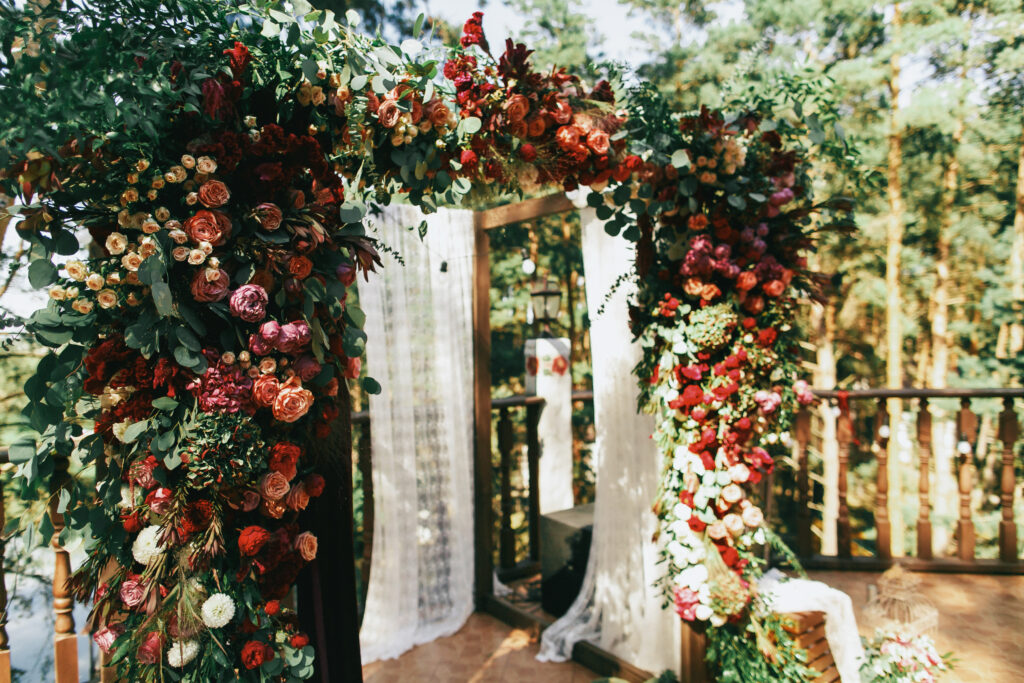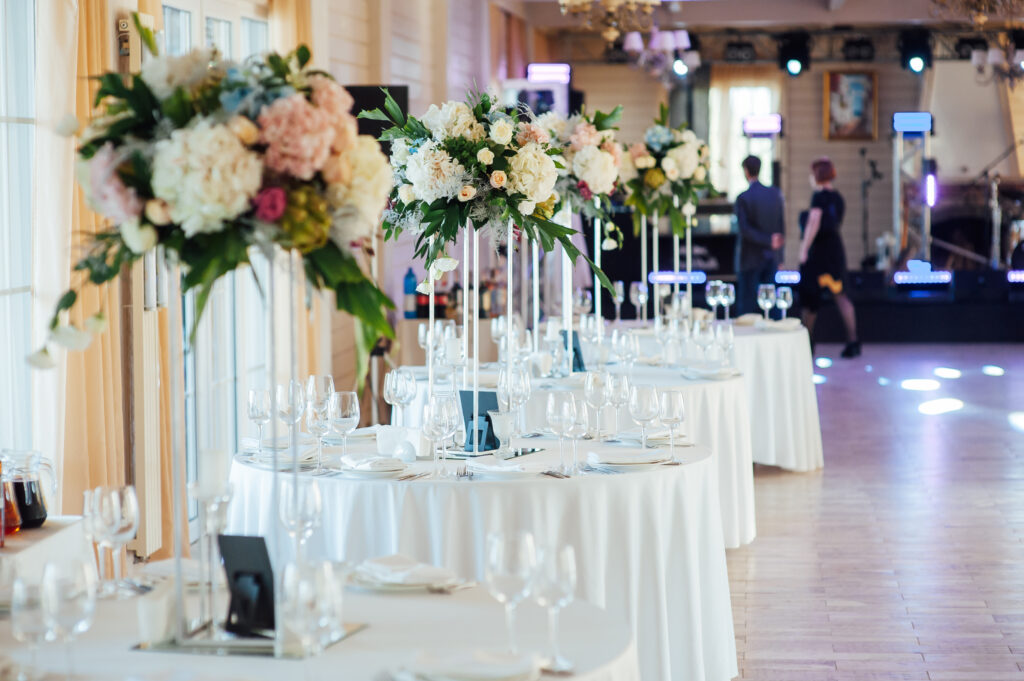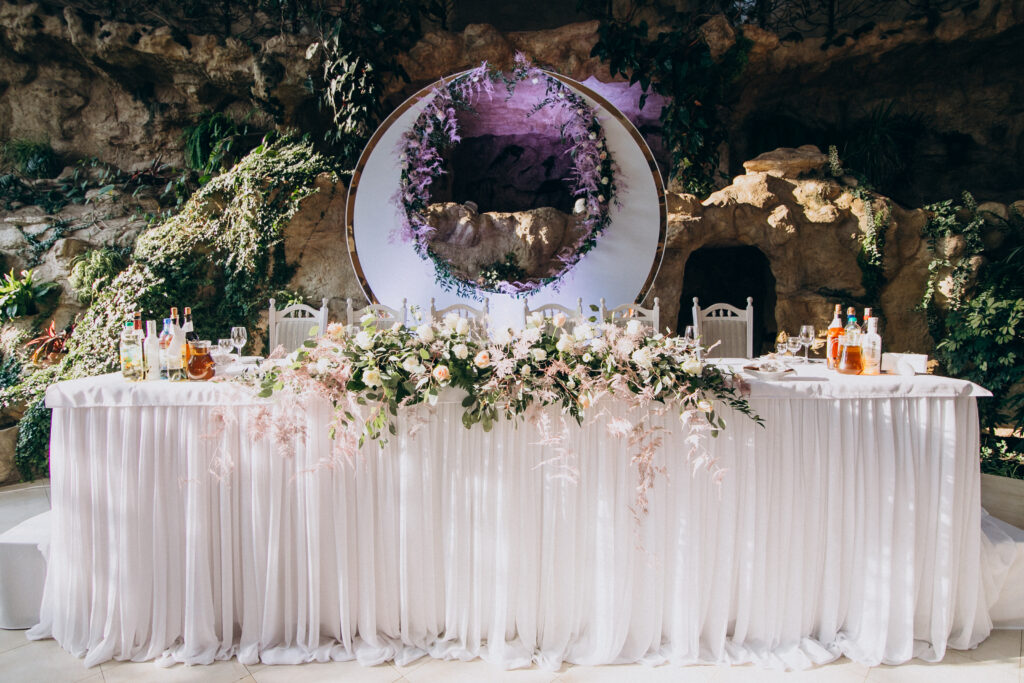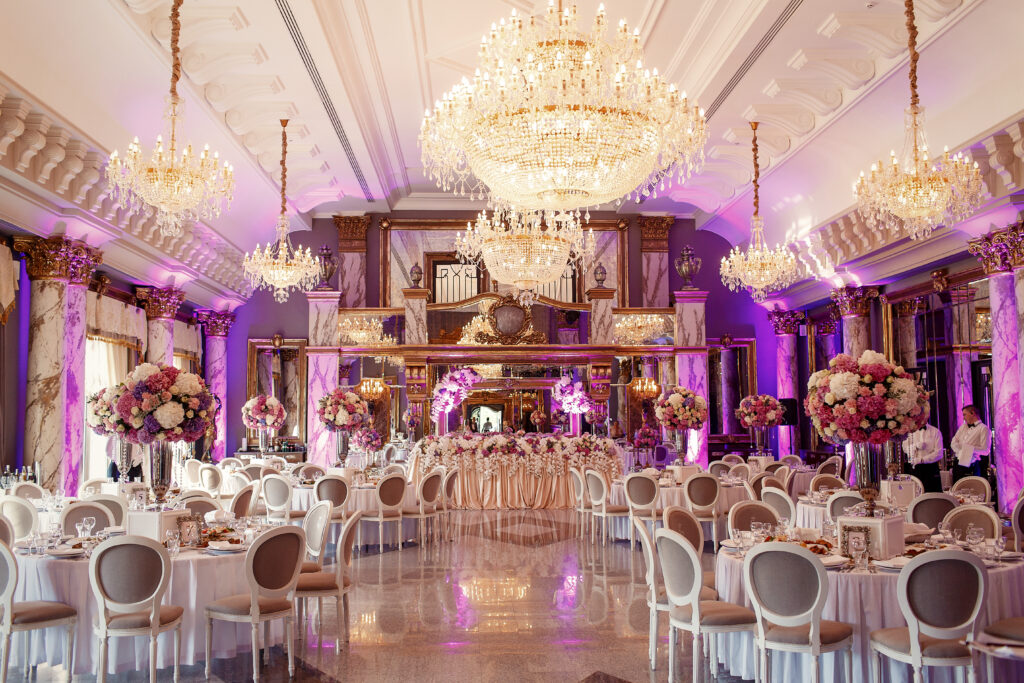Planning a wedding is a time-consuming task that often involves juggling multiple details and making numerous decisions. However, the wedding planning industry has been evolving in recent years, embracing new trends and innovations to make the process more efficient and enjoyable for couples. From technology advancements to sustainability efforts, there are several key areas shaping the future of wedding planning. In this article, we will explore these trends and innovations that are revolutionizing the world of weddings.
Traditionally, planning a wedding involved countless hours of research and coordination with various vendors and service providers. Couples would spend months visiting venues, taste-testing food, trying on dresses, and organizing guest lists. However, with the advent of technology, wedding planning has undergone a significant shift.
As weddings have evolved over time, so too has the approach to planning them. In addition to the traditional aspects of venue selection and menu tastings, couples now have a plethora of new trends and options to consider. From eco-friendly weddings that prioritize sustainability to destination weddings in exotic locations, the possibilities are endless.
In the past, couples had to rely heavily on word-of-mouth referrals and bridal magazines to find vendors and gather ideas for their wedding. They would often create physical mood boards and keep scrapbooks filled with inspirations, color palettes, and fabric samples. The process was time-consuming and required a lot of leg work.
Moreover, the traditional wedding planning process was deeply rooted in cultural and familial traditions. From following specific rituals to adhering to customary dress codes, there was a sense of continuity and heritage in each step of the planning journey.
Today, technology has become an invaluable tool for planning weddings. Couples can now research and find vendors online, view virtual tours of venues, and browse through countless inspiration boards on social media platforms. The shift towards modern wedding planning has made it easier for couples to streamline their planning process and access a wide range of options.
Furthermore, modern couples are increasingly prioritizing personalization and creativity in their weddings. From custom-designed invitations to unique entertainment options, weddings today are a reflection of the couple’s individuality and style. This emphasis on personal touches has transformed the wedding industry, inspiring vendors to offer innovative services and products to meet the growing demand for bespoke experiences.
Technology has revolutionized the wedding planning industry, providing couples with innovative tools and resources to simplify the planning process and create unforgettable experiences for their special day.
There is an abundance of digital tools available to assist couples in planning their wedding. From budgeting apps to guest list management software, technology has made it easier than ever to stay organized and keep track of every detail. Online platforms also allow couples to communicate with vendors, collaborate with their wedding party, and even create customized wedding websites.
Moreover, some advanced digital tools now offer features like seating arrangement simulations, virtual venue tours, and real-time vendor availability updates. These tools not only streamline the planning process but also enhance the overall wedding experience by providing interactive and personalized solutions.
Virtual reality and augmented reality technologies are rapidly gaining popularity in the wedding planning industry. These technologies allow couples to experience venues, decor, and even wedding attire in a virtual environment, enabling them to make more informed decisions and visualize their dream wedding. By using virtual reality headsets or augmented reality apps, couples can explore different options without the need for physically visiting each location or trying on multiple outfits.
Furthermore, virtual reality can transport couples to exotic destination wedding locations or showcase elaborate decor setups that may not be feasible in real life. Augmented reality, on the other hand, can overlay digital elements onto the physical world, offering a unique way to preview different design concepts or experiment with color schemes in real-time.
One of the emerging trends is the rise of eco-friendly weddings. Couples are opting for organic, locally sourced food and beverages, using biodegradable or reusable utensils, and selecting sustainable materials for their decor. From ethically sourced flowers to eco-conscious wedding favors, couples are embracing environmentally friendly options to reduce their wedding’s ecological footprint.Furthermore, some couples are taking sustainability a step further by incorporating DIY elements into their weddings. By handcrafting decorations or repurposing items for their special day, they not only infuse their wedding with personal touches but also reduce waste and support a more sustainable approach to celebrations.
Minimalism has gained traction in various aspects of life, and weddings are no exception. Minimalist weddings focus on simplicity and meaningful experiences rather than extravagant displays. Couples are opting for smaller guest lists, understated decor, and focusing on personal connections to create intimate celebrations that are in alignment with their values.Moreover, the minimalist trend extends beyond the wedding day itself, with some couples choosing to donate to charitable causes in lieu of traditional wedding gifts or investing in experiences rather than material possessions. This shift towards minimalism not only simplifies the wedding planning process but also encourages a deeper focus on what truly matters, fostering a sense of mindfulness and intentionality in the celebration of love.
In today’s society, personalization and customization are highly valued. Couples want their weddings to be unique and reflective of their personalities, interests, and love story. As a result, personalization and customization have become significant trends in wedding planning.
One of the key demands from couples is to create unforgettable wedding experiences for themselves and their guests. Couples are seeking out unique venues, such as museums, art galleries, and even private estates, to set the stage for a one-of-a-kind celebration. They are also exploring non-traditional entertainment options, personalized ceremonies, and interactive elements to make their wedding day truly memorable.
Weddings are becoming more personalized, with couples incorporating their passions and interests into their wedding themes and decor. Whether it’s embracing a specific cultural or ethnic background, showcasing a shared hobby or interest, or incorporating personalized elements into their decor, couples are finding ways to make their wedding truly their own.Furthermore, in the realm of personalized wedding themes and decor, couples are increasingly turning to DIY (do-it-yourself) projects to add a unique touch to their special day. From handmade centerpieces to personalized signage and handcrafted wedding favors, couples are putting their creativity and craftsmanship to work to infuse their wedding with a personal and heartfelt touch. This trend not only adds a personalized element to the wedding but also allows couples to showcase their talents and creativity to their guests, creating a more intimate and memorable experience for everyone involved.
Another aspect of personalization in wedding planning is the focus on customized culinary experiences and signature cocktails. Couples are moving away from traditional wedding menus and opting for personalized dining options that reflect their favorite foods, cultural backgrounds, or shared culinary experiences. Additionally, many couples are choosing to create signature cocktails that hold special meaning to them, whether it’s a drink that represents the location of their first date or a cocktail that incorporates their favorite flavors. By curating a unique culinary experience for their guests, couples are able to further personalize their wedding celebration and create lasting memories through food and drink.
Social media has revolutionized the way we connect and share information, and it has had a significant impact on the world of wedding planning as well.
Couples now turn to social media platforms like Instagram and Pinterest for inspiration and ideas. From wedding dresses to decor, couples can browse through an endless stream of visuals and save their favorite inspirations. Social media platforms allow couples to follow wedding industry professionals, glean expert tips, and stay up-to-date with the latest trends, helping them curate their dream wedding.
Furthermore, social media has influenced wedding trends by generating new ideas and driving the popularity of certain styles. What starts as a niche trend on social media can quickly become a mainstream sensation, inspiring couples around the world to incorporate those elements into their own weddings. Social media has the power to shape the aesthetics and overall vision of weddings, making it an influential force in the industry.
The future of wedding planning is filled with exciting trends and innovations that are transforming the traditional wedding planning process. Technology advancements, sustainability efforts, personalization and customization, and the influence of social media are all shaping the way couples plan their weddings. With these developments, couples now have a broader range of options, tools, and inspirations to create weddings that are truly reflective of their love story. As the world continues to evolve, so too will the world of wedding planning, ensuring that couples have even more innovative and enjoyable experiences in the years to come.










